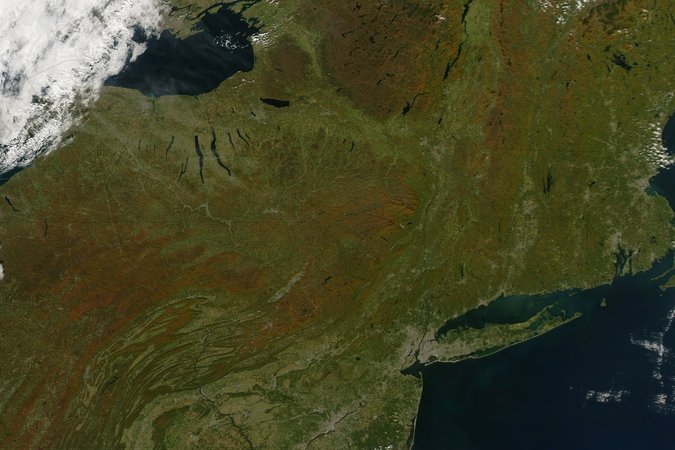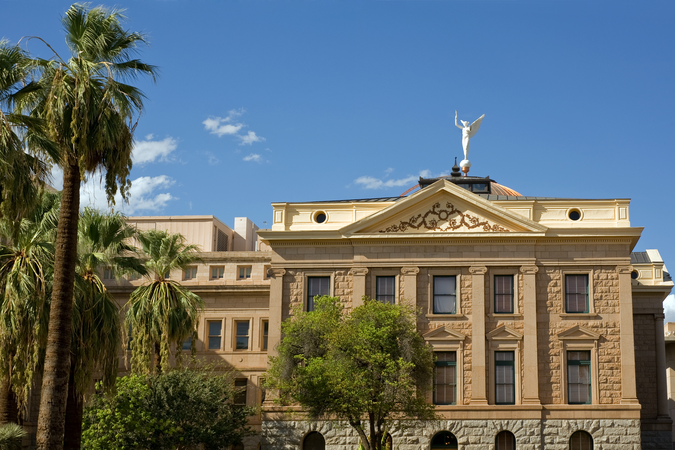The Role of the States in Federal Climate Change Legislation: Issues and Options
A day-long conference at Resources for the Future to explore how state responsibilities can be reconciled with emerging federal climate policies.
As the Obama Administration ramps up federal policy activity on global warming, officials around the country are quick to point out that many states have already taken a significant lead in devising new strategies to address climate change. Such actions prompted a day-long conference at Resources for the Future to explore how state responsibilities can be reconciled with emerging federal climate policies.
Five panels considered how to move forward and create a true state-federal partnership. There was a general consensus around the desirability of balancing a leadership role for states against the dangers associated with creating a patchwork of conflicting policies across the country. But like many other state-federal issues, there were differing perspectives on where the appropriate balance lies.
In welcoming remarks, RFF President Phil Sharp recognized the key roles that states play in climate policy: influencing public opinion; finding the best among many alternative choices; and experimenting with design and implementation through such programs as the Regional Greenhouse Gas Initiative and the Western Climate Initiative. But Sharp also sounded a cautionary note on localized approaches to climate policy, noting that federalist programs in Europe to reduce carbon emissions undermined both transparency and effectiveness in their early stages.
Throughout the day, panelists addressed the state-federal relationship in a number of areas, including concerns by states that a federal policy: would be insufficiently stringent and undercut state efforts by setting a floor rather than a ceiling on national emissions, would be overly prescriptive and stifle innovation, and, would hurt state budgets by cutting off potential revenue streams and imposing unfunded mandates. Specific topics addressed during the conference included:
- Cap and trade programs and the treatment of existing state programs in a federal regime, including state-granted allowances and the revenues associated with them;
- Transportation policy and the tension between state vehicle and fuel emission standards and manufacturers’ desire for a uniform, national policy;
- The merits of national vs. state renewable portfolio standards;
- The role of state and local governments in promoting energy efficiency and effective land use policies; and
- Ways to retain incentives for states to continue to act as laboratories for innovation.
Can state and federal policies accommodate each other? According to Gina McCarthy, Commissioner of the Connecticut Department of Environmental Protection, the answer to that question is, "It depends." Touching on several of the themes heard throughout the day, McCarthy said she and her counterparts in other states support the enactment of a new federal cap-and-trade program, but they want to be sure it is stringent enough to achieve what science demands and respectful of the states as partners in the effort. "If it's strong enough and builds on state and regional climate actions, then we'll start talking about implementation," she said. "Until that time, states will continue to push the envelope on climate policy, demonstrating that progress really can be made—even in a down economy—as long as you look for and invest in opportunities to build a clean energy future."
The conference was organized by Senior Fellow Kate Probst as part of the RFF Climate Policy Program.
Event Agenda and Presentation Slides
The Current Federal Legislative Landscape: What is the State Role?
Joe Goffman, Senior Counsel, Senate Environment and Public Works Committee
Gerry Waldron, Staff Director, House Select Committee on Energy Independence and Global Warming
Dale Bryk, Senior Attorney, Natural Resources Defense Council
Download Presentation (PDF)
Franz Litz, Senior Fellow, World Resources Institute
Download Presentation (PDF)
Cap and Trade: What Happens to Pre-Existing State and Regional Efforts? What is the Role of States Going Forward?
Gina McCarthy, Commissioner, Connecticut Department of Environmental Protection
Brian McLean, Director, Office of Atmospheric Programs, U.S. Environmental Protection Agency
Download Presentation (PDF)
Bill Becker, Executive Director, National Association of Clean Air Agencies
Elizabeth Anne Moler, Executive Vice President, Government and Environmental Affairs and Public Policy, Exelon Corporation
Download Presentation (PDF)
Transportation: State and Federal Options for Reducing GHG
Brian Turner, Assistant Executive Officer for Federal Climate Policy, California Air Resources Board
David Raney, Senior Manager, Environmental and Energy Affairs, American Honda Motor Company, Inc.
Download Presentation (PDF)
Bob Nordhaus, Member, Van Ness Feldman
Download Presentation (PDF)
Harnessing the Power of State and Local Governments: Renewable Portfolio Standards, Energy Efficiency, and Land Use
Joseph Fiordaliso, Commissioner, New Jersey State Board of Public Utilities
Download Presentation (PDF)
Richard Cowart, Director, Regulatory Assistance Project
Download Presentation (PDF)
Charles Pattison, President, 1000 Friends of Florida
Download Presentation (PDF)
Where Do We Go from Here? What are the Key Questions that Need to be Asked and Resolved?
Eileen Tutt, Deputy Secretary of Climate Change and Environmental Justice, California EPA
Brian Flannery, Manager, Environment and Strategy Development, ExxonMobil Corporation
Dallas Burtraw, Senior Fellow, RFF
Vicki Arroyo, Executive Director, Georgetown State–Federal Climate Resource Center





